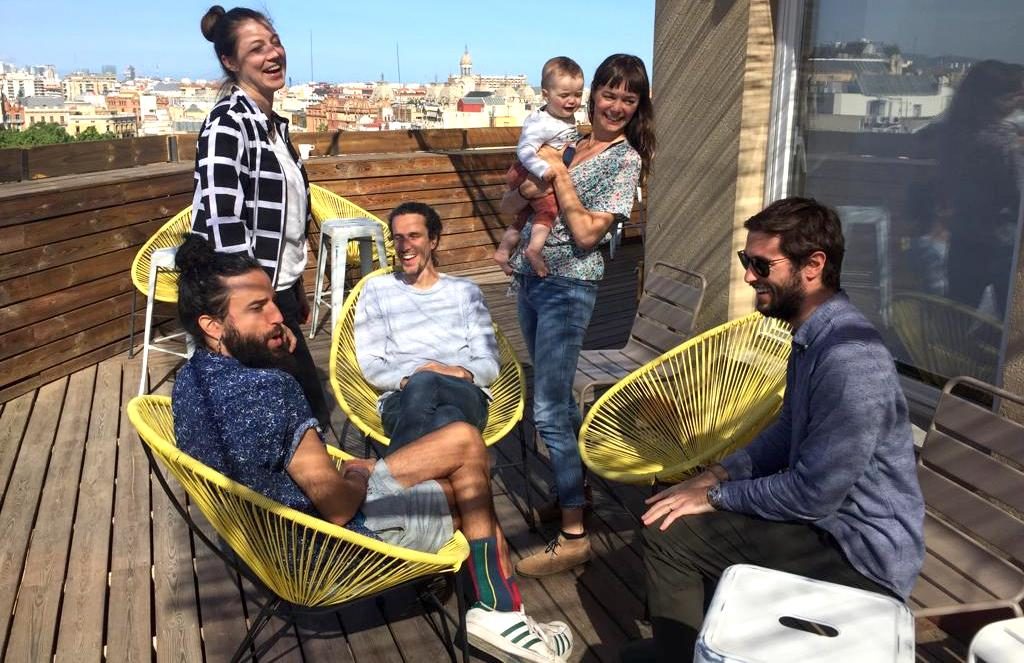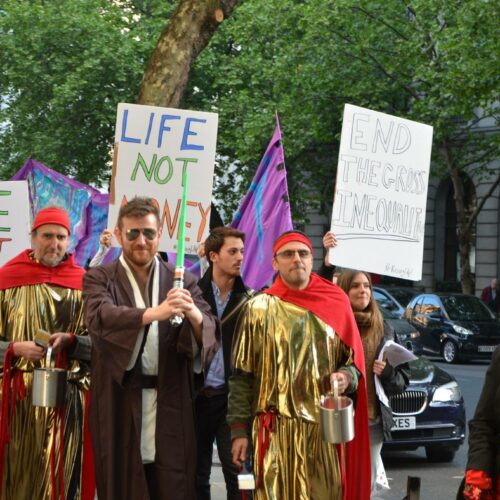Go With the Flaw is an initiative we started last year to proudly state that ‘it’s perfectly okay to screw up, just try to learn from it’ both to our grantees and fellow funders. You can read a bit more about our reasoning around failure here.
Like most (probably all) grantmaking institutions, we too have an application process for funding. From the outset we’ve placed a lot of emphasis on the interpersonal connections and the discussions that happen with prospective grantees before they even apply. This is all a part of trust-building and seeing whether we’re a good fit to work together, because if the chemistry between funder and grantee is good, all kinds of creative collaborations arise, beyond simply the channeling & use of monetary resources. We collaborate on events, build coalitions & craft synergies, write articles together, exchange ideas & know-how, we sometimes go to protests & marches together & even go out on social non-work-related outings (shock/horror). This is all part of a wider amplifier-effect we seek in our collaborations & such intimacy is integral to movement building.

Of course, we also have an application form and up until recently we had a closed call system of collecting applications (for our larger grants of approx. 15,000 EUR) and then evaluating them in batches twice a year. This meant that we would talk to candidates & meet with activists & collectives either virtually or in person during the summer and then we’d invite approximately a dozen to apply in autumn, then we’d start compiling another batch and invite that one to apply in the spring. In parallel, we’ve had our Reflex Fund from which we award up to 5,000 EUR grants, all year round with a quick response time of about 2 weeks.

We used this method for 2.5 years but it became quickly clear that there were some major limitations to this format. The first hint was the raging success of the Reflex Fund, that was constantly being applied to, confirming of course what we already knew, that there is immense need for funding of activist ventures across Europe, all-year-round. However, our larger grants often cover core operational costs of collectives to do whatever badassery it is they do, or provide the main meat for a campaign or protest or direct action that we’re backing. (NOTE: Lots of our grantees have zero funding up until the point that they come to us, and many have annual budgets below 50,000 EUR).

Remember how we said that we work closely with our grantees and talk through things with them? Well, we also happen to listen and we really encourage other funders to do the same. While we don’t have formal feedback forms on our application process, we use the old method of asking “how was this process for you? any tips on how we could make it better?” and this where the second hint hit home. Candidates are constantly forced to align their work to funders’ closed and open call windows. Many Foundations have only a single call for funding, per year which means that applicants need to plan their whole entire year in advance. In the fast-shifting realm of activism this is nigh impossible. Moreover, funding windows often leaves activist groups hanging and this is why they simply make do with volunteer work & in-kind donations since their work cannot be neatly aligned to seasonal funding cycles.

Therefore a few months ago we decided to radically rework our internal processes and we abolished our closed calls altogether. Our large grants are now offered on a rolling basis, while the Reflex Fund continues unchanged. We are continuing to conduct our conversations with numerous prospective applicants in parallel, and depending on urgency we invite a couple to apply every month, that way there is a constantly available stream for funding and no long, half-year waiting periods. The availability for larger grants all year round tops our need to more easily compile and process grants in batches. Our advisors agreed. Even though it means potentially more calls, research into applicants and offering of feedback & evaluations, they agree that not many funders do this and therefore it is a gamechanger move. One possible limitation we’ve discussed, is that we no longer have a comparative framework within which to compare a big batch of applicants as in the case of batched-closed-calls. However, we now have given out over 60 large grants and have all those past grantees to compare new ones against, plus it is fairer to judge an applicant solely on the quality of their work rather than how they stack up against others since we’re not looking to cause more competition between movements rather, spark alliances.

In addition, we took this opportunity in protocol shifting to revamp our application form and really distill it to the essentials. We do not want our applicants spending ages on forms, we want them organising grassroots communities & designing imaginative campaigns. Therefore we simplified and shortened our application, so that it now has a mere 10 questions, two of them mandatorily only seeking 1 sentence-long answers. One thing that remains a unique aspect of our grantmaking that we’re retaining and that is worth mentioning here, since so many candidates rave about it, is our reporting demands. First of all, we ask our grantees how they would like to report to us. It can be in the shape of a call or a report the length and content of which is up to them or via interpretive dance. Following the non-paternalistic approach, we also allow grantees that have received core support to submit to us reports they’ve had to prepare for anally-retentive funders so that we don’t add even more admin work to their plate.

The main take home messages here are to keep listening to your co-conspirators, build trust with them first though, so that they really offer genuine feedback and then make the requisite changes. Also, look to the field and see what others are doing and then do the exact opposite because that’s precisely where the opportunities to add value are.


